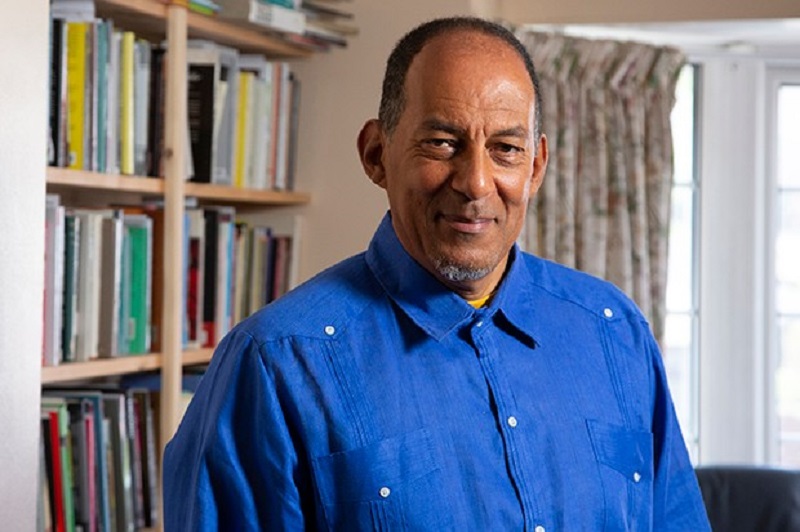Black scholarship in the UK risks being wiped out due to redundancies and course closures, leading academics have warned.
Universities in England are engulfed in a financial crisis and have, in response, implemented a number of cost-cutting measures.
But prominent academics and students are raising the alarm that these cuts are falling on lecturers and courses that played a leading role in addressing racial disparities in higher education.
The University of Chichester made Prof Hakim Adi redundant and cut his MRes on the history of Africa and the African diaspora. Prof Robert Beckford, the well-known theologian who researched climate and social justice, has been made redundant at the University of Winchester, and Birmingham City University (BCU) shuttered its black studies undergraduate course.
While Goldsmiths, University of London reversed plans to cut its Black British literature MA, stating it would commit to running the course for another two years after an outcry, it recently made the founder and convener of the course, Prof Deirdre Obsorne, redundant. Kadija George Sesay, who was one of several writers who signed an open letter criticising the move, told the Guardian that she had returned her honorary fellowship to Goldsmiths.
In the past decade, there were notable advances in the creation of dedicated lectureships, and broader curriculum development in black history, culture, politics and philosophy in higher education. This, as well as active mentoring and recruitment of academics of colour, led to improvements in the number of black professors in the UK.
However, universities say they are in the midst of a dire financial crisis, and these courses, while expensive to run, are not as popular as they are in the US, where the discipline of black history and arts is more established.
Campaigners say the courses and the lecturers’ specialist knowledge should be ringfenced and require time and development to have an impact. Even with recent improvements, fewer than 1% of professors are black.
Beckford said: “The reality is I’ve never been in a job since 1993 which has been secure. I’ve always had the threat of redundancy because there was always a lack of funding for posts that were connected to race. I’ve never had that kind of luxury of knowing that I was in a place that was going to invest in me and give me lots of time to develop my craft.”
Beckford, who alone supported 16 black PhD students, added: “You get a freeze on the development and mentoring by jettisoning people like me. My work has always been fundamentally about empowering black students, empowering black colleagues.”
While the University of Winchester said it would not comment on individual cases, a spokesperson noted that “all the redundancies upon which we have consulted reflect the challenging financial circumstances facing the university sector”.
Prof Kehinde Andrews, who leads Birmingham City University’s black studies department, said he was disappointed but not surprised when he was told the undergraduate course would be cut. “There’s no appreciation for the importance of black intellectual thought, so they get rid of it really easily. I think that’s what you’re seeing everywhere.
“You can’t even call it erasure because there’s so little black production in Britain. It’ll be completely wiped out; there’ll be nothing left.”
BCU declined to comment.
Adi believes these cuts will have a dire impact on the number of black history professors in the UK. The master's course he oversaw produced seven students who went on to undertake studies at the PhD level, six of them at Chichester.
“We were particularly trying to redress the imbalance in higher education: the fact that there were so few students of African and Caribbean heritage studying history at postgraduate level in this country,” he said.
The students on Adi’s course have launched a legal challenge against the university, alleging discrimination and breach of contract after it terminated the programme while they were part way through their studies.
A spokesperson for the University of Chichester said while it had made the “difficult decision” to suspend a number of courses, current masters students “were encouraged to complete their studies with us and were offered appropriate tuition”.
Osborne was heartbroken when her redundancy was confirmed earlier this month. “What kind of message does removing opportunities for access to that knowledge send to students and future generations of black creatives?”
Dr Stephen Graham, Goldsmiths’ executive dean of faculty, said the MA programme provided a crucial platform for black scholarship and increased diversity within the academic community. “These were the reasons both behind the creation of the MA programme and our persistence in supporting it in the face of low recruitment numbers,” he said.
He added he was aware of the concerns about the impact on black scholarship of the financial challenges universities face.
A student in the Black British literature programme, who did not wish to be named, said: “I joined the course because of the professor, who is a leading academic in the space. I absolutely trusted her experience, vision and commitment – that has now been taken away.
“New students who have arrived from overseas have spoken to the professor and made a significant financial and personal commitment, and that professor is simply not there.”
Graham said: “The course is being taught by two leading black scholars and over the next two years we will work to develop a more multidisciplinary programme that will help in attracting more students.”



